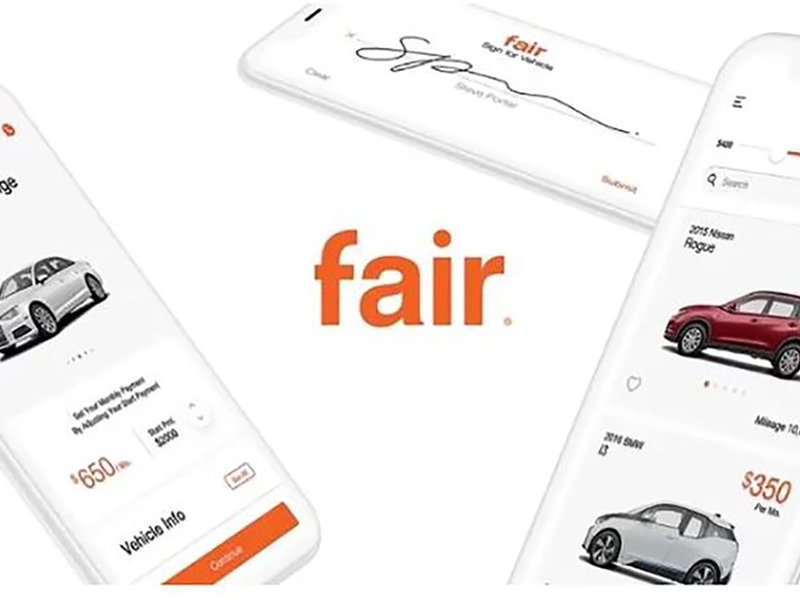
Used-vehicle subscription service Fair has stopped signing up new subscription and lease customers as the company considers a possible bankruptcy filing and prepares to convert its business into a third-party marketplace.
The Santa Monica, Calif.-based company plans to relaunch as a digital vehicle marketplace in early 2022, with the first quarter as a goal, CEO Brad Stewart told Automotive News. The move comes after Stewart, who joined the company as its chief executive in May 2020, said he evaluated the business and determined its capital-intensive nature, which required Fair to hold vehicles on its balance sheet, made it too challenging to scale.
“We’re going to exit that business and focus elsewhere,” Stewart said.
Fair stopped originating vehicle subscriptions and leases about four months ago, he said. An estimated 5,000 to 10,000 vehicles remain in its inventory.
Shortly after taking the top job, Stewart told Automotive News that Fair needed to expand into more markets and attract more funding from more diverse sources. Yet he said this week that the company ultimately opted not to raise the additional capital it would have required to scale beyond California and Florida, the only states in which it remained after leaving a number of other markets.
Fair’s subscription service operated on a mobile app, through which consumers could drive a vehicle on a subscription basis after paying a start fee, followed by a monthly payment. Roadside assistance, limited warranties and routine maintenance were included.
The company was founded in 2016 by Scott Painter, who left the CEO role in October 2019. The company had raised money, including in a $385 million funding round in 2018 led by SoftBank, but struggled to become profitable.
Bloomberg reported this month that a bankruptcy filing would allow SoftBank to keep control of the company, but it could impact other equity investors.
Fair’s board has not yet approved a plan, and bankruptcy is not guaranteed, though a decision on the debt could come within months, Stewart told Automotive News. The company owes $315 million in senior secured debt to SoftBank, in addition to other unsecured liabilities, he said.
The vehicle leasing model “required it to raise a lot of debt, and the company has not been able to repay that debt and doesn’t have the ability to pay it,” he said. “And for us to raise the capital we need to pursue the marketplace business requires that debt to be eliminated or meaningfully reduced.”
Stewart said expanding Fair would be difficult because the demand for used-vehicle subscriptions and leasing products is limited compared with demand for cash or financed vehicle purchases. He added that some loan terms and new-vehicle leases also are cost-competitive for some consumers, and a short-term vehicle subscription comes with higher costs.
Fair’s brand and technology instead can serve a marketplace model that facilitates a vehicle transaction between consumers and dealerships without carrying the risk on the company’s balance sheet, he said.
The company’s model, he said, would be analogous to “either Carvana without owning the cars, or think of it as Autotrader where you can purchase the car and have all of the things that go along with it — insurance and F&I products and logistics — facilitated by that platform. In this case, us.”
Stewart said Fair would handle an entire digital transaction, including finance and insurance and paperwork. Partnering dealerships would arrange test drives, trade-ins and vehicle delivery as well as longer-term service needs, he said. Consumers would transact digitally from Fair, which would purchase the vehicle in a wholesale transaction from the dealership and sell it directly to the buyer without holding it long term on the company’s books, he said.
“In my opinion, the choice and the right path forward was incredibly obvious,” he said. “And so we chose not to go raise money for our leasing business and we are now choosing to go raise money for our marketplace business.”

